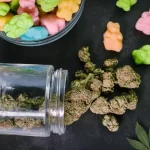
In the realm of addiction and mental health, the intersection of co-occurring disorders presents a unique and complex challenge for individuals seeking recovery and wellness. Dual diagnosis, also known as co-occurring disorders, refers to the presence of both a mental health disorder and a substance use disorder simultaneously. In this blog, we’ll explore the intricacies of dual diagnosis, its impact on individuals’ lives, and the integrated approach to treatment that offers hope and healing for those affected.
Understanding Dual Diagnosis
Dual diagnosis is more common than many may realize, with studies suggesting that as many as half of individuals with a substance use disorder also have a co-occurring mental health disorder. These disorders can range from mood disorders such as depression and bipolar disorder to anxiety disorders, PTSD, personality disorders, and schizophrenia, among others. The interplay between mental health and substance use disorders can complicate diagnosis, treatment, and recovery, leading to poorer outcomes and higher rates of relapse if left untreated.
The Vicious Cycle of Dual Diagnosis
Dual diagnosis creates a vicious cycle in which each disorder exacerbates the symptoms of the other, leading to a downward spiral of worsening mental health and increased substance use. For example, individuals with depression may turn to alcohol or drugs as a form of self-medication to numb their emotional pain or alleviate feelings of sadness and hopelessness. Conversely, substance use can contribute to the development or exacerbation of mental health symptoms, such as anxiety, paranoia, or psychosis, further complicating the picture.
Barriers to Treatment and Recovery
Dual diagnosis presents unique challenges in diagnosis, treatment, and recovery. Individuals with co-occurring disorders may face stigma, shame, and discrimination, both within the healthcare system and society at large, which can deter them from seeking help. Additionally, the presence of both mental health and substance use disorders can complicate treatment planning and coordination, as traditional approaches to addiction or mental health treatment may overlook or inadequately address the complexity of dual diagnosis.
Integrated Treatment Approach
Fortunately, integrated treatment approaches have emerged as the gold standard for addressing dual diagnosis, recognizing the interconnected nature of mental health and substance use disorders and the need for comprehensive and coordinated care. Integrated treatment programs offer a holistic approach that addresses both disorders simultaneously, utilizing evidence-based practices such as medication management, psychotherapy, behavioral interventions, and peer support.
Key Components of Integrated Treatment
Integrated treatment programs typically include the following key components:
- Comprehensive Assessment: A thorough evaluation is conducted to assess the individual’s mental health, substance use history, and other relevant factors to inform treatment planning and intervention.
- Dual-Focused Treatment: Treatment plans are tailored to address both the mental health and substance use disorders concurrently, with a focus on addressing underlying issues and promoting holistic healing.
- Medication Management: Psychiatric medications may be prescribed to manage symptoms of mental health disorders, reduce cravings, or support detoxification and stabilization.
- Psychotherapy: Individual therapy, group therapy, and family therapy are utilized to address the psychological, emotional, and relational aspects of dual diagnosis and develop coping skills for managing symptoms and triggers.
- Peer Support and Recovery Groups: Participation in support groups such as Dual Recovery Anonymous (DRA) or Dual Diagnosis Anonymous (DDA) provides individuals with peer support, validation, and encouragement from others who understand their experiences.
- Lifestyle Changes: Emphasis is placed on adopting healthy lifestyle habits, including nutrition, exercise, sleep hygiene, and stress management, to support overall well-being and enhance recovery outcomes.
Embracing Hope and Healing
Dual diagnosis presents unique challenges, but with the right support, resources, and integrated treatment approach, individuals can achieve lasting recovery and reclaim their lives. If you or someone you know is struggling with dual diagnosis, know that help is available, and recovery is possible. By addressing the interconnected nature of mental health and substance use disorders and embracing a holistic approach to treatment, individuals can embark on a journey of healing, resilience, and empowerment. Together, we can break the cycle of dual diagnosis and build a future filled with health, hope, and fulfillment.
The Berman Center is a top-rated dual-diagnosis center in Georgia. Contact us today to learn more about our various programs and addictions we treat.







